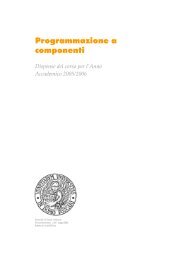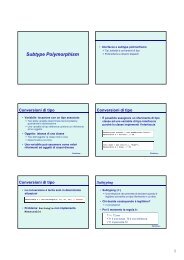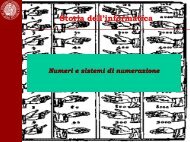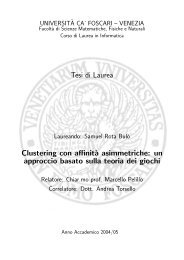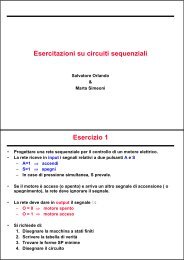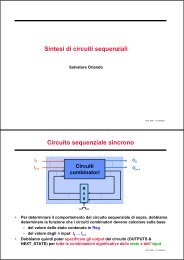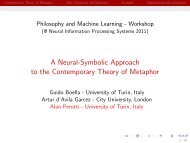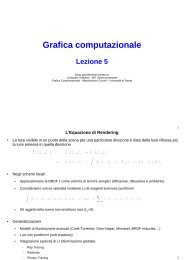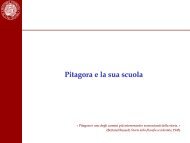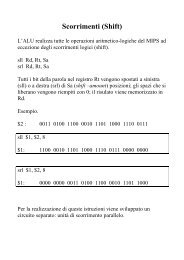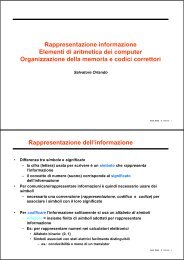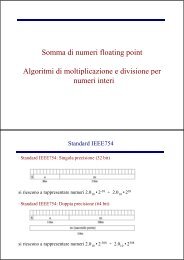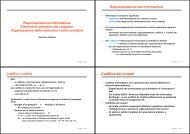Foscari - Dipartimento di Scienze Ambientali, Informatica e Statistica
Foscari - Dipartimento di Scienze Ambientali, Informatica e Statistica
Foscari - Dipartimento di Scienze Ambientali, Informatica e Statistica
You also want an ePaper? Increase the reach of your titles
YUMPU automatically turns print PDFs into web optimized ePapers that Google loves.
small,great<br />
smaller,<br />
greater<br />
the smallest,<br />
the greatest<br />
1 vowel + double final double final<br />
1 consonant consonant + er consonant + est<br />
big, wet<br />
the biggest,<br />
bigger, wetter<br />
wettest<br />
Note also the following irregular adjectives:<br />
Adjective Comparative Superlative<br />
good better the best<br />
bad worse the worst<br />
little less the least<br />
much more the most<br />
far further / farther<br />
the furthest /<br />
farthest<br />
2 To compare two people, things, or events use a comparative adjective + than.<br />
Microsoft is bigger than Amazon.<br />
A Ferrari is more expensive than a Fiat.<br />
3 To make an equal comparison (to say that things are the same), you can use as ... as.<br />
Canada's GDP per head is as big as Italy's. Sweden's inflation rate is not as low as Japan's.<br />
4 To compare adverbs (you usually make adverbs by ad<strong>di</strong>ng ly to the verb, e.g. slow > slowly) use more<br />
and less.<br />
I work more efficiently if I remember to take short breaks.<br />
5 Comparisons can be made stronger or weaker by using mo<strong>di</strong>fiers such as: a lot, a little, considerably,<br />
much, slightly.<br />
This one is much / slightly / a lot bigger than that one.<br />
Form the comparative and superlative of the following adjectives.<br />
Fast late cheap good fat bad<br />
far happy feasible<br />
Read this report comparing the use of online investment facilities in Canada and the US. Underline<br />
the correct form in italics.<br />
Nearly half (48%) of Cana<strong>di</strong>an Internet users who have been online for less than/that a year have<br />
already banked online, while just 13% of American Internet newcomers have done so. Active Internet<br />
users in Canada and the United States who have not yet banked online agreed they favour more / most<br />
tra<strong>di</strong>tional methods of banking and have concerns about privacy or security.<br />
15% of active Cana<strong>di</strong>an Internet users have invested online compared to 10% of American users. In<br />
both Canada and the United States, the bigger / biggest users of online banking are aged 18 to 34.<br />
Internet users aged 55 and older are less/the least likely to do their finances over the web.<br />
Clearly the use of online banking and investing will only increase in the future as the younger /<br />
81



